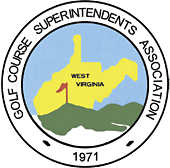 The annual bluegrass weevil (ABW), Listronotus maculicollis, can have two to three generations per year and cause significant damage to many golf courses in New York. But monitoring and managing ABW in an economically and environmentally sustainable way can be difficult. However, by using proper scouting methods along with a well-informed decision-making process, you can improve the effectiveness and efficiency of ABW management at your facility.
The annual bluegrass weevil (ABW), Listronotus maculicollis, can have two to three generations per year and cause significant damage to many golf courses in New York. But monitoring and managing ABW in an economically and environmentally sustainable way can be difficult. However, by using proper scouting methods along with a well-informed decision-making process, you can improve the effectiveness and efficiency of ABW management at your facility.
ABW adults overwinter in leaf litter, tall grasses, and other areas with dense organic matter that provides a buffered environment from harsh winter conditions. On a typical golf course, overwintering habitats include roughs, grassy native areas, forest edges, and tree and shrub lines. In spring — as early as March in upstate New York — ABW adults emerge from their overwintering areas and move toward golf turf playing areas to begin reproduction. This is when the ABW management season begins.
During the spring, ABW adults can be controlled before they lay eggs. Scouting for adult ABW is important for decision-making, with the primary goals for adult scouting being to determine the following:
-
- Timing and location of ABW emerging from overwintering sites — when and where on each course. Recording these location helps to narrow scouting efforts later in the season.
- Pattern of ABW adult movement following emergence toward short-mown turf.
- Timing of peak activity of ABW adults, meaning the point at which the majority of ABW adults are found at or within the playing surface (fairway, tee, green) edge.
Adult scouting should begin in March and continue weekly until peak activity is observed at the nearest playing surface and noted. This stage generally coincides with the phenological stage of half green/ half gold on forsythia and occurs at roughly 110 – 120 growing degree days (GDD – base 50 beginning March 1). This will also highlight areas for larval monitoring later in the season.
To learn more about scouting and ABW management, see our new video “Scouting & Decision Making for Annual Bluegrass Weevil” featuring the work of Dr. Kyle Wickings, Cornell University, and funded by a Turfgrass Environmental Stewardship Fund grant. This video is a companion to our ABW publication Diagnosis and Decision Making for Sustainable Annual Bluegrass Weevil Management.




